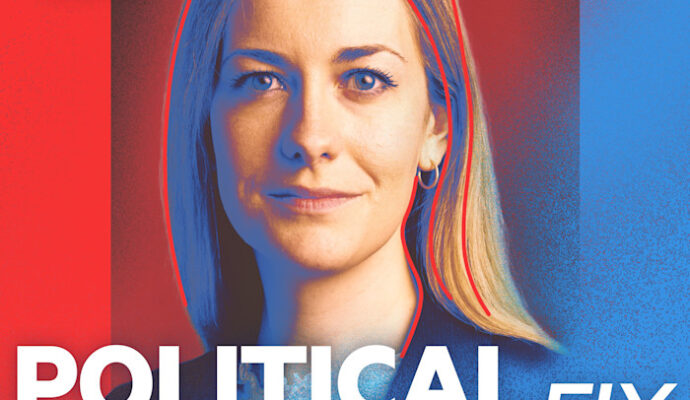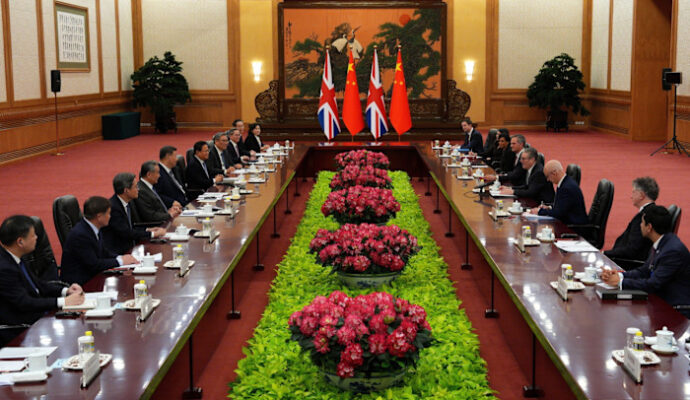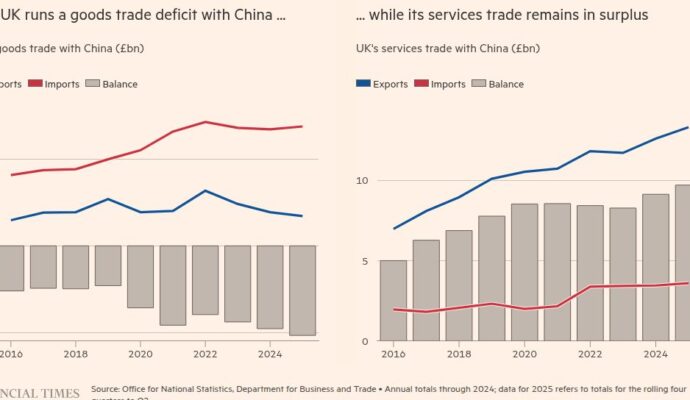Stay informed with free updates
Simply sign up to the Artificial intelligence myFT Digest — delivered directly to your inbox.
Two of the world’s largest artificial intelligence companies are moving deeper into India, aiming to tap the world’s most populous country for new users and use it as a test bed for expansion into other emerging markets.
OpenAI’s ChatGPT and the AI search engine Perplexity launched India-specific plans and products this summer, targeting the country’s vast number of young and price-conscious consumers.
In August, ChatGPT introduced an India plan for Rs399 ($4.50) per month and said it was opening its first office in the country of 1.4bn people.
“We have to be selective on which markets we go to understand deeply . . . with the hope that we learn things that can translate elsewhere,” Nick Turley, head of ChatGPT, told the Financial Times.
The AI chatbot has invested in improving accessibility by offering its service in a dozen Indian languages to penetrate rural areas, Turley said, adding that the app was also being adapted to work in low-bandwidth environments.
1.13tn
The number of hours Indians spent on apps in 2024
The multi-language approach enables ChatGPT to train its models for deeper penetration and replicate their learnings in other geographies. “I think it’s a really unique opportunity for India to lead the way,” said Turley.
OpenAI’s move follows Perplexity in July offering its annual $200 Pro service for free to subscribers of Airtel, India’s second-largest telecom provider.
Aravind Srinivas, the Chennai-born co-founder and chief executive of Perplexity, told the FT that his moves were “driven by the fact that Indians are among the most curious people on the planet”.
Meanwhile, India is already the largest market for Meta’s AI-enabled services, with 1bn users across WhatsApp, Instagram and Facebook, and around 95 per cent of smartphone users choosing Google Android-based handsets, giving its AI platform Gemini an edge in the country.
While India’s large population offers scale, it is a difficult market to monetise. According to digital market researcher Sensor Tower, Indians led the world in 2024, downloading 24.3bn apps and spending 1.13tn hours on them. However, their spending was not even in the top 20, at less than $1bn.
“The sheer volumes make India a market which cannot be ignored,” even though India remains a low revenue market per customer, said Mahesh Makhija, technology consulting leader in India at EY.
India would provide a single and inexpensive market for AI to train on data sets, offering “very significant data advantages, and these companies could benefit from that”, said Makhija. The data would assist in creating agents to help users do different tasks, which was their “holy grail”.
The global giants are also benefiting from a lack of local competition. While government-backed start-ups, such as Sarvam AI, are building domestic models, they have yet to develop consumer products that can compete with platforms like ChatGPT, Gemini, Perplexity, or China’s DeepSeek. The latter’s breakthrough this year has served as a wake-up call for many in the country.
Jibu Elias, an AI researcher and governance expert who has worked with the Indian government, said it would wait to establish a strong regulatory framework for AI, as it wanted to give Indian entrants room to innovate.
“Our ecosystem is very nascent, and the players we have are all mostly start-ups, young entrepreneurs<” he said. “I think the government has made it very clear that it wants to have a pro-innovation ecosystem, and jumping into regulation early on will give these big guys an unfair advantage.”
But in the absence of domestic incumbents, ChatGPT and Perplexity are looking to leverage their first-mover advantage to acquire many young users, Elias said, as “once they are in, once their usage goes up, they kind of get locked [into] that particular AI tool”.
Sensor Tower’s data shows downloads of AI apps are up more than 500 per cent so far this year in India, compared with the same period in 2024, “showcasing how swiftly these platforms have become adopted by consumers”.
ChatGPT is the most popular AI app this year, with 125mn downloads, more than four times Perplexity’s 26mn and the 23mn for Google’s Gemini.
Turley called the country an “absolutely incredible market for us” with it now becoming its second-largest by users, “and we very much soon expect it to be the biggest one”.


